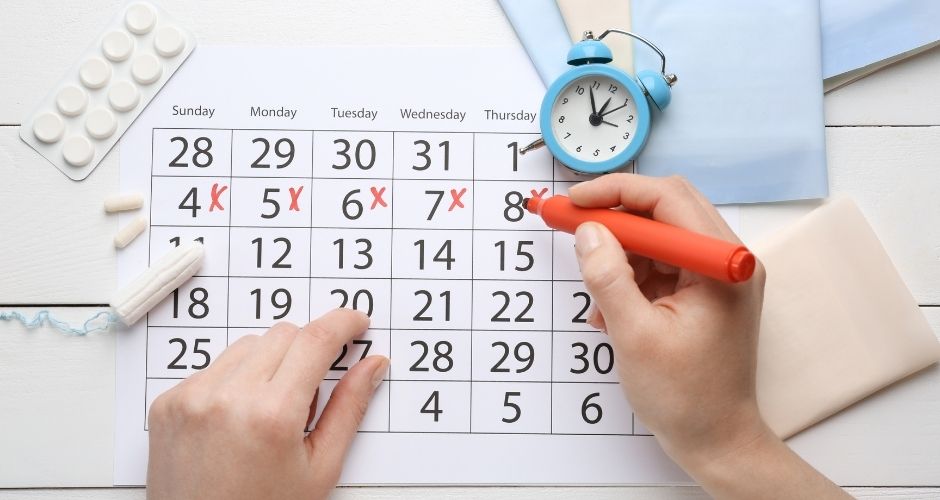11 Reasons Why Your Period Is Late

A late period can stir up a whirlwind of emotions-confusion, anxiety, relief, or even excitement. While pregnancy often comes to mind first, it’s far from the only reason your menstrual cycle might be delayed.
From stress to lifestyle changes, understanding why your period is late can help reduce worry and guide your next steps.
Here’s a deep dive into 11 common reasons for a late period, plus fun facts and tips on what you can do.
Understanding Your Menstrual Cycle
Before we dive in, let’s quickly cover the basics. A typical menstrual cycle lasts about 28 days, though anywhere from 21-35 days is normal. Hormones-primarily estrogen and progesterone-regulate the cycle, which includes:
- Menstrual Phase: Shedding of the uterine lining (your period)
- Follicular Phase: Egg development
- Ovulation: Release of a mature egg
- Luteal Phase: Uterine lining thickens in preparation for pregnancy
A disruption in any phase can push your period off schedule.

1. Pregnancy – The Most Common Reason
If you’re sexually active, a late period often signals pregnancy. Once a fertilized egg implants, your body stops shedding the uterine lining-meaning no period.
Tip: Take a home pregnancy test if you’re at risk, or a blood test for more accuracy.
Fun Fact: Some women experience implantation bleeding, which can be mistaken for a light period!
2. Stress
High stress levels-from work, school, or personal life-can affect the hypothalamus, the brain’s hormone-regulating hub. This can delay or even skip ovulation.
Signs: Trouble sleeping, changes in appetite, feeling overwhelmed
Tip: Yoga, meditation, journaling, or daily walks can help balance your cycle.
Fun Fact: Studies show that even just thinking about stress can temporarily delay ovulation.
3. Polycystic Ovary Syndrome (PCOS)
PCOS is a hormonal disorder that often causes irregular or missed periods, along with small ovarian cysts, acne, excess facial hair, and weight gain.
Tip: Consult a doctor for testing; treatment may include lifestyle changes, birth control, or hormone therapy.
Fun Fact: Women with PCOS may have more than twice the normal androgen levels, affecting ovulation frequency.
4. Weight Fluctuations
Significant weight gain or loss can disrupt hormones and delay ovulation. Body fat plays a key role in estrogen regulation-too little or too much can throw your cycle off.
Tip: Maintain a healthy weight through balanced nutrition and exercise.
Fun Fact: Extreme dieting or rapid weight loss can pause menstruation for months in some women.
Give a look – 11 Signs Your Period is Coming Tomorrow
5. Excessive Exercise
Intense physical activity, especially without proper nutrition, can lead to hypothalamic amenorrhea, where the brain slows hormone production to conserve energy.
Who’s at Risk: Athletes, dancers, marathon trainers, bodybuilders
Tip: Scale back intensity and consult a sports nutritionist.
Fun Fact: Olympic athletes often experience cycle irregularities during peak training seasons.
6. Thyroid Issues
Your thyroid regulates metabolism, which affects menstrual cycles. Both underactive (hypothyroidism) and overactive (hyperthyroidism) glands can delay periods.
Symptoms: Fatigue, hair thinning, weight changes, temperature sensitivity
Tip: Blood tests and proper medication can normalize your cycle.
Fun Fact: The thyroid and ovaries communicate through hormones-tiny gland, huge effect!
7. Birth Control & Medications
Hormonal contraceptives (pills, patches, IUDs, injections) can alter cycles or stop periods altogether. Other medications-antidepressants, chemotherapy, or allergy drugs-can also play a role.
Tip: Consult your doctor if concerned; dosage or method changes can help.
Fun Fact: Some women on birth control never experience natural periods while on the medication-and it’s completely safe!
Recommended – Period Mistakes That Every Girl Should Avoid
8. Perimenopause
Women in their 40s may enter perimenopause, a stage before menopause characterized by hormone fluctuations and irregular periods.
Signs: Hot flashes, mood swings, sleep issues, vaginal dryness
Tip: Speak with a gynecologist about hormone therapy or natural symptom relief.
Fun Fact: Perimenopause can last up to 10 years, gradually transitioning to menopause.
9. Chronic Illness or Medical Conditions
Conditions like diabetes, autoimmune disorders, celiac disease, or prolonged infections can disrupt your cycle.
Tip: Managing the underlying condition often restores regular periods.
Fun Fact: Your body prioritizes healing over reproduction during illness-nature’s way of self-protection.
10. Travel or Time Zone Changes
Jet lag, disrupted sleep, or altered routines can affect your circadian rhythm, which influences hormone production.
Tip: Allow your body a few days to adjust. Track your cycle if traveling frequently.
Fun Fact: Even a short weekend trip across time zones can slightly delay your period!
11. Breastfeeding
Prolactin, the milk-producing hormone, suppresses ovulation. Many breastfeeding women experience delayed or absent periods in the first 6 months postpartum.
Tip: Periods usually return once breastfeeding is reduced or stopped.
Fun Fact: Lactational amenorrhea can act as a natural form of birth control for some women.
When to See a Doctor
Contact your healthcare provider if:
- Your period is more than 2 weeks late
- You miss three or more cycles consecutively
- You experience severe pain or heavy bleeding
- You notice unusual symptoms like hair loss, vision changes, or abnormal discharge
Final Thoughts
A late period doesn’t always signal a serious problem, but it’s your body’s way of saying something might be off. Tracking your cycle, staying healthy, and seeking guidance when needed can help you stay in tune with your reproductive health.
Remember: Every woman is unique-what’s normal for one might not be for another. Understanding your body is key to stress-free periods.
FAQs: Late Periods Answered
1. Can I miss a period and not be pregnant?
Yes. Stress, illness, hormone imbalances, and lifestyle changes can all delay your period even if you’re not pregnant.
2. How late is considered “late” for a period?
Anything more than 5–7 days late from your expected cycle can be considered delayed.
3. Is it normal to have an irregular period sometimes?
Yes. Most women experience an irregular period at some point due to changes in health, weight, stress, or other temporary factors.
4. Can I get my period and still be pregnant?
Not exactly. Some women experience implantation bleeding or light spotting in early pregnancy, but it’s not a true period.
5. Should I track my periods?
Absolutely. Tracking your menstrual cycle helps identify irregularities early and provides useful data for medical consultations.
6. Can dehydration delay your period?
Not directly, but dehydration can cause stress in the body, which may affect your cycle indirectly.
7. What is the main reason for late periods?
The most common reason for a late period is hormonal imbalance, often caused by stress, weight fluctuations, or lifestyle changes. Other factors such as polycystic ovary syndrome (PCOS), thyroid disorders, excessive exercise, or certain medications can also disrupt your menstrual cycle. In some cases, a missed or delayed period could be an early sign of pregnancy.
8. What to eat to get periods early?
Certain foods may help regulate or stimulate menstruation naturally by supporting hormonal balance. Try including:
- Papaya – Promotes uterine contractions.
- Ginger – Boosts blood circulation and helps trigger periods.
- Pineapple – Contains bromelain, which may help soften the uterine lining.
- Turmeric milk – Known to regulate hormones.
- Vitamin C-rich foods (like oranges and lemons) – Can increase estrogen levels, encouraging menstrual flow.
9. How many days late is normal?
A delay of up to 7 days is generally considered normal for most women, as menstrual cycles can naturally vary each month. If your period is more than 10 days late, it’s a good idea to take a pregnancy test or consult your healthcare provider to rule out underlying health issues such as PCOS, thyroid imbalance, or hormonal fluctuations.
10. What can delay your period from coming?
Periods can be delayed due to several physical and emotional factors, including:
- Stress or anxiety – Affects hormone production.
- Significant weight loss or gain – Alters estrogen levels.
- Excessive exercise – Reduces body fat and disrupts ovulation.
- Illness or chronic medical conditions – Like thyroid disorders or diabetes.
- Birth control or medications – Certain contraceptives and drugs can delay your period.






